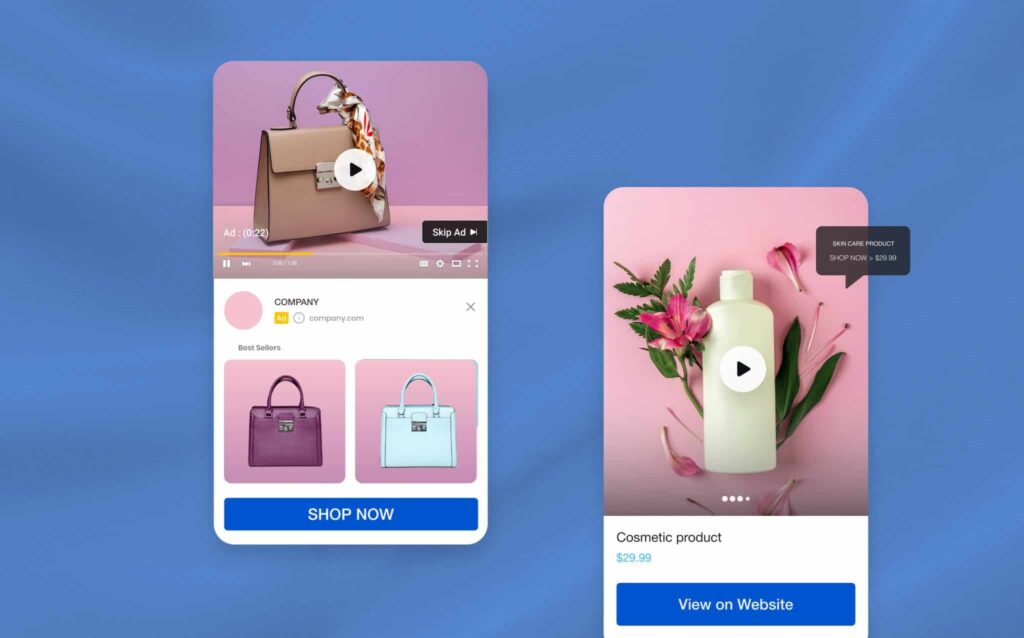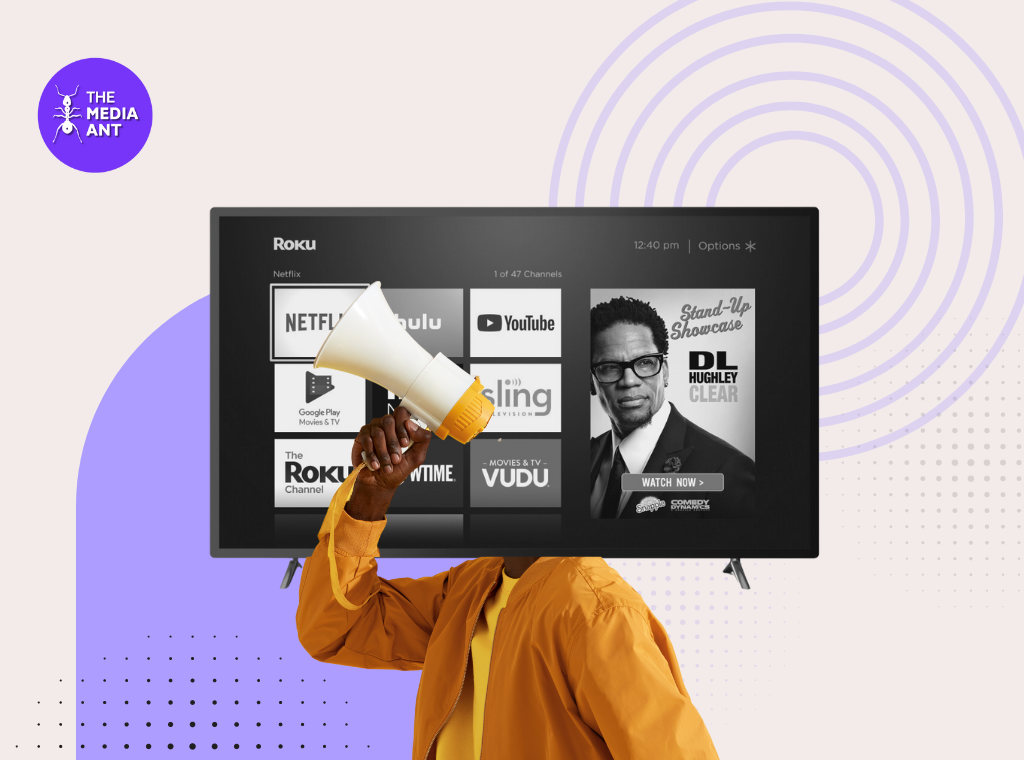Introduction
The world is moving online, and OTT advertising is one of the aspects that is revolutionizing this new world. As more consumers switch to getting their content through streaming services, OTT platforms have emerged as one of the key advertising touchpoints for consumers, making it essential for advertisers. Here are the trends that would dominate the OTT advertising space as we proceed further into the year 2025. This article discusses these trends and hopefully offers some ideas to the advertisers to take advantage and build on them.
What is OTT Advertising?
OTT advertising means selling adverts through stream services and video-on-demand services without going via cable or satellite TV. Internet-connected advertising is a type of advertising that effectively targets the viewers through devices such as smart TVs, computers, tablets, and smartphones. OTT advertising can be defined as an efficient method of advertising that is able to precisely reach target audiences and provide a multitude of formats including pre-roll, mid-roll, post-roll, and interactive.
It is critical to understand that OTT advertising trends are constantly changing as better technology is developed and new patterns of consumer behavior emerge. It is crucial for advertisers specifically intending to grasp these trends and ways to increase their presence and presence in the digital environment.
9 OTT Advertising Trends That are Getting Popular
AI-Driven Personalization
Another popular OTT ad trend of the year 2025 is the use of artificial intelligence in the process of personalization. AI is beneficial to advertisers because it helps them work with large volumes of information in order to identify viewer preferences and actions. This is because with the help of AI, the advertisers can come up with specific ad messages that will appeal to the customer.
Interest based advertising is likely to have higher chances of capturing the attention of the targeted individuals, as they are created for specific targets. This trend is bound to grow in the future as the application of AI is developing and continues to become integrated in many areas of advertising.

Shoppable Ads
Another key trend in OTT advertising is shoppable ads. Such ads enable customers to shop right from the ad, making the process of shopping a part of the viewing process. Shoppable ads are highly relevant for e-commerce brands since they minimize the gap between an ad and the potential purchase.
Using clickable elements inside the ad, one can read more about a particular product, add it to the cart or make a purchase without exiting the stream. As consumers continue to look for easy ways to shop this trend is believed to grow as more and more people look for easy ways to shop.

Augmented Reality (AR) Integration
One of the latest trends in OTT advertising is the integration of Augmented Reality (AR) that gives the viewers new possibilities for interaction. AR technology superimposes digital content on the actual environment and it helps to create a more immersive environment to the stories.
For instance, an OTT ad might leverage AR to enable the viewer to imagine how a particular piece of furniture would look in their living room or interact with a character. Such a level of interactivity may help to build memorable consumer experiences and ensure higher brand recognition.

Ad Sequencing and Storytelling
Brands are also turning to extend their advertising messages to make them more consistent in the form of ad sequencing and narratives known as storytelling, in OTT environments. While ad campaign delivers one particular advert, ad sequence entails a number of adverts within a chronological time frame. By employing this approach, brands are then able to fashion out a more engaging saga, thus keeping the audience coming for the next episode.
Good ad sequencing involves using data to determine the sequence and times of ads for every viewer involved so as to provide them with a well-told story. This, in turn, shows the relevance of creative thinking and proactive approaches in OTT advertisement banners.
Enhanced Privacy and Data Protection
This is particularly the case given that privacy has remained a topical issue in the recent past, as consumers become increasingly concerned with how their data is being handled. It is a legal obligation for advertisers and a growing public demand for brands, especially in the digital age, to understand where data lies and how it can be used.
To tackle such issues, OTT platforms have now incorporated more stringent measures for data protection and are also providing detailed information on the collection and utilization of users’ data. Advertisers are also going through privacy-conscious approaches, for instance, context-based advertising, which does not involve individual information yet it depends on the content acquired.
Programmatic Advertising Growth
For now, programmatic ads are the trending type of advertising for OTT providers since it has high effectiveness. These include automatic ad placements and the use of programmatic buying algorithms and systems for the placement of ads.
This can be attributed to market advancements in technology and data in the market that can be used by the advertisers to reach their market. The programmatic advertising technique also has an edge over others in the sense that specific campaigns may be adjusted slightly depending on the overall performance to ensure that the ad placements are as optimum as can be obtained.
Live OTT Advertising
Another promising approach is broadcasting ad content that leverages people’s interest in broadcasting live content. Regardless of whether it is a sports match or a live concert, or news related broadcasts, through live OTT advertising, brands can target the interested audience instantly.
Previews mostly create a more enhanced impression because they give a real time feeling to the viewer such that he or she feels the need to act now. This trend is particularly so given that most viewers today are increasingly watching live content on the OTT platforms and being able to interact with the advertisers in the process is priceless.
Retail Media Networks
Retail media and networks are also becoming quite important in the OTT ad space. Such networks help retailers to make money by selling advertisement space on their digital properties. For instance, a streaming platform may collaborate with a large supermarket or store to advertise products that the store has for sale.
This trend provides a win-win scenario: The additional revenue is created for the retailers, and brands get a rich base of potential consumers. Other advantages that come with retail media networks include more data insights on targeting and measurement.
Fragmentation Across Walled Gardens
OTT advertising is cutting across numerous walled gardens, which are closed ecosystems managed by particular platforms. Each of the major players such as Netflix, Amazon Prime video, Disney plus have their own ad platforms with their own buckets of data and targeting options.
There is an element of discretion and yet fragmentation that presents both opportunities and threats for advertisers. On the one hand, it involves the use of several platforms when dealing with different data types, which gives way to precisely aimed and platform-sensitive approaches that may improve the efficacy of campaigns.
Conclusion
Modern day advertising through OTT platforms is becoming more popular with new trends being developed that will prove beneficial for brand collaboration. These trends include artificial intelligence based personalized content, shoppable ads, improved privacy, the development of programmatic ads in OTT.
As these trends of OTT advertising evolve, this knowledge will allow advertisers to reach the maximum audience and engagement continually in today’s congested digital market. The advantages of embracing these trends are clear: clients receiving ads that are more relevant to their interests, improving overall ad effectiveness and campaign performance, as well as increasing the chances for creativity and innovation.
FAQs Related to OTT Advertising Trends
What are the different types of OTT advertising?
OTT advertising includes various formats such as pre-roll, mid-roll, post-roll, banner ads, interactive ads, and shoppable ads. Each type serves different purposes and offers unique advantages in engaging viewers.
Is OTT advertising effective?
Yes, OTT advertising is highly effective due to its ability to target specific audiences, measure performance in real-time, and deliver personalized content. It also reaches viewers across multiple devices, enhancing its overall impact.
What format is OTT advertising?
OTT advertising formats include video ads (pre-roll, mid-roll, post-roll), interactive ads, shoppable ads, and display banners. These formats can be tailored to fit the content and platform, ensuring optimal viewer engagement.
What does the rise of OTT mean for advertisers?
The rise of OTT means greater opportunities for advertisers to reach engaged audiences through personalized and targeted content. It also means navigating a more fragmented landscape and leveraging advanced technologies to optimize ad delivery and performance.
How to place OTT ads?
Placing OTT ads involves partnering with OTT platforms, leveraging programmatic advertising tools, and working with media buying agencies. Advertisers can use data-driven strategies to target specific audiences and measure campaign performance in real-time.





